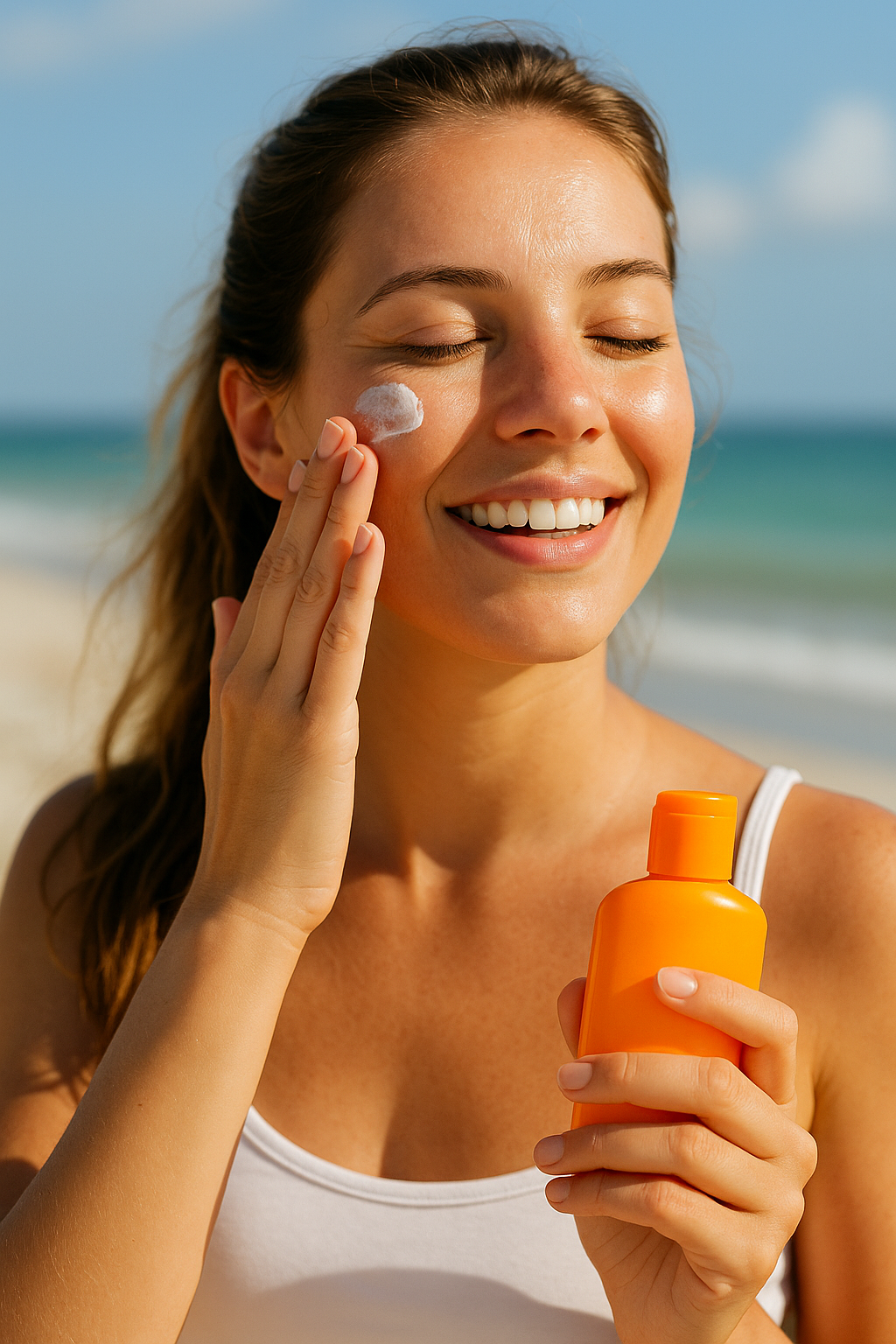
The Ultimate Guide to Sunscreen: Why SPF Is Non-Negotiable
Share
The Ultimate Guide to Sunscreen: Why SPF Is Non-Negotiable
When people think about skincare, they often focus on glowing serums, nourishing moisturizers, or the latest trending masks. But ask any dermatologist and you’ll hear the same answer: sunscreen is the single most important product you can use for your skin’s long-term health. Without proper protection, all the effort you put into your skincare routine can be undone by sun damage.
Why sunscreen is essential every day
The sun emits ultraviolet (UV) radiation that reaches your skin whether it’s sunny, cloudy, or even if you’re indoors near windows. These rays penetrate the skin and cause:
-
Premature aging (photoaging): Wrinkles, sagging, and fine lines appear faster when your skin is unprotected.
-
Dark spots & hyperpigmentation: Uneven skin tone develops from repeated sun exposure.
-
Weakened skin barrier: Skin becomes more prone to dryness, sensitivity, and irritation.
-
Skin cancer risk: Prolonged, unprotected sun exposure is the leading cause of skin cancer.
Wearing sunscreen every day is not about vanity—it’s about prevention and long-term health.
The anti-aging powerhouse you’re ignoring
Think of sunscreen as the cheapest and most effective anti-aging product. Retinol, vitamin C, and peptides can help repair your skin, but none of them can stop ongoing sun damage. Sunscreen prevents the problem before it starts, saving you both money and years off your skin’s appearance.
How to choose the right sunscreen
Not all sunscreens are created equal. Here’s what to look for:
-
Broad-spectrum protection: Blocks both UVA (aging rays) and UVB (burning rays).
-
SPF 30 or higher: Dermatologists recommend at least SPF 30 for daily use.
-
Formulation for your lifestyle:
-
Lightweight gels for oily skin
-
Hydrating creams for dry skin
-
Mineral formulas for sensitive skin
-
-
Water-resistant options: Best for outdoor activities or workouts.
How to apply sunscreen correctly
-
Use about a nickel-sized amount for your face and neck.
-
Apply 15–20 minutes before sun exposure.
-
Reapply every 2 hours or immediately after sweating or swimming.
-
Don’t forget easily missed areas: ears, lips, eyelids, hands, and the back of your neck.
Year-round protection
A common misconception is that sunscreen is only necessary in the summer. In reality, UVA rays—which are primarily responsible for aging—are present year-round and can even penetrate glass. That means whether you’re driving, working by a sunny window, or taking a walk in winter, sunscreen is still non-negotiable.
Lifestyle habits to boost sun protection
Sunscreen works best as part of a bigger protective lifestyle:
-
Wear hats and sunglasses for added defense.
-
Stay in the shade during peak UV hours (10 a.m.–4 p.m.).
-
Pair sunscreen with antioxidant serums like vitamin C for extra protection.
Sunscreen isn’t just another step in your skincare routine—it’s the foundation. By making SPF a daily habit, you’re protecting your skin’s health, preventing premature aging, and lowering your risk of serious conditions like skin cancer. Think of it as the ultimate investment in your skin’s future.